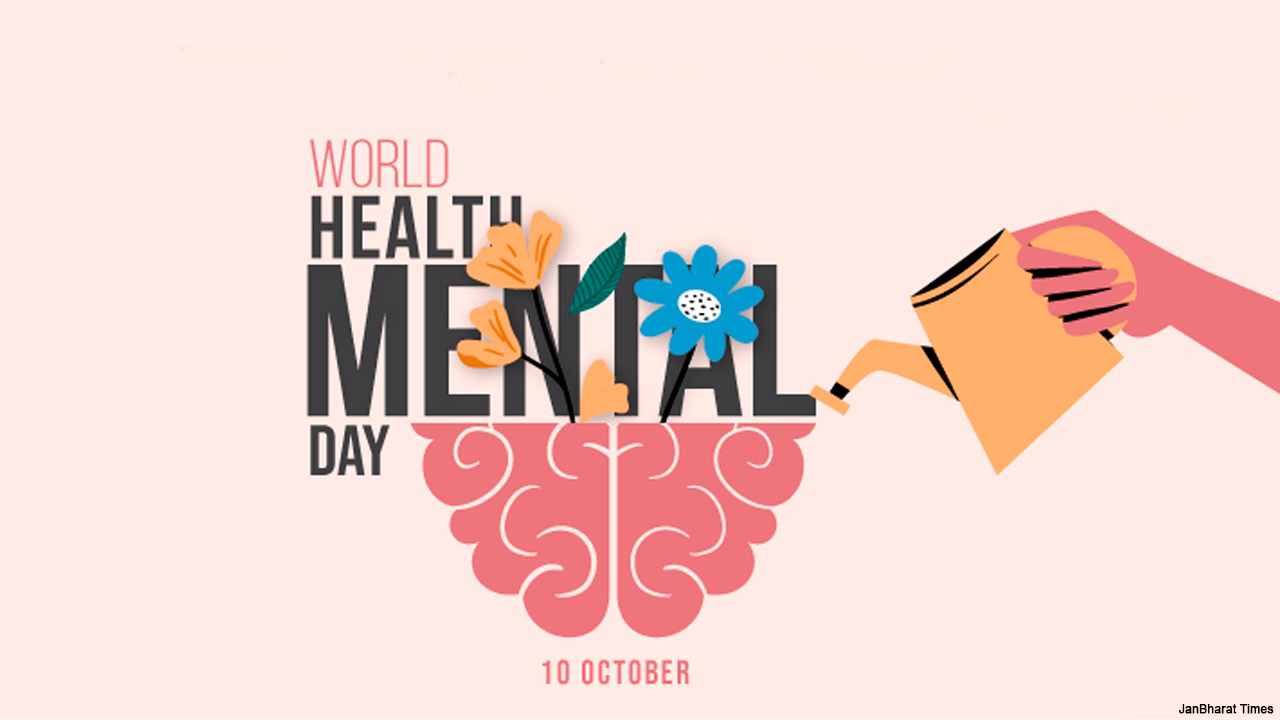World Mental Health Day is observed annually on the 10th Of October around the world. The 2022 World Mental Health Day theme ‘Make Mental Health & Well-Being for All a Global Priority’ directs that we all can make an effort to make the world a better place to live.
The after-effects of the coronavirus, wars, and climate emergency all of this are impacting the well-being of citizens around the globe. They are affecting the quality of life. The incidences of people experiencing suicidal ideas are increasing globally and people with lived experiences of mental health, their families, and other populations are there to tell us that mental health was always neglected, criticized, discriminated and stigmatized in our society. It was never a priority for the government until some time ago. Stigma and discrimination continue to be a barrier to social inclusion and access to the right care.
COVID has shown that no nation was prepared for the associated mental health crisis and the effects of long Covid.
Employers generally were not prepared for the new normal. The culture of our workplaces needs to support the mental health and well-being of the workforce so that employers are in a better position to produce constructive output. The mental health and well-being of a society can be achieved by promoting exercise and widening access to good nutrition and food, all of which will have a positive impact. The mental health and well-being of many health, social care, and frontline workers have been affected by the pandemic and systems need to be strengthened to better support such staff during times of crisis and challenge.
The 2030 Agenda for Sustainable Development and Sustainable Development Goals (SDG’s) cannot be accomplished without improving the mental well-being of all. The COVID pandemic has taken out the curtain from the incapable health system which is ill-prepared to deal with physical and mental health challenges faced by their population.
We need to work with governments and other stakeholders of the medical fraternity to apply universal preventive measures that reduce the risk of mental ill-health. This includes the promotion of social inclusion policies, support and direct investment for vulnerable populations, and investment in communities and young people to reduce crime. We need to support well-being interventions across the life course from pregnancy, birth, early childhood, early teens, and adulthood to older adulthood - we need to improve the social determinants of health and address mental health stigma and discrimination.
Tips to improve mental health
- Sleep well
- Take good nutrition
- Physical workout
- Take breaks from long working hours
- Pay attention to your thoughts
- Acknowledge your feelings

 Mental health is as important as physical health in determining the quality of life. The incidences of people experiencing mental health issues are increasing globally, especially after the pandemic. On this WMHD, let’s play our part in increasing awareness about preventive mental health interventions and their positive outcomes.
Mental health is as important as physical health in determining the quality of life. The incidences of people experiencing mental health issues are increasing globally, especially after the pandemic. On this WMHD, let’s play our part in increasing awareness about preventive mental health interventions and their positive outcomes.










.jpeg)



.jpg)




.jpg)





.jpeg)

.jpg)


